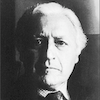- 13 Dec 2012 21:33
#14129309
What event was most influential into fully shaping Hitler's political ideology. From 1918 -1919 I can think of 4 major events which are candidates.
1. The loss of World War 1 in November 1918.
2. The creation of the Weimar Republic in 1919 and the short lived Bavarian Soviet Republic.
3. The Versailles Treaty of June 1919.
4. Meeting Karl Mayr and becoming a intelligence agent for the military between May-July 1919.
I would say the Versailles Treaty because it clearly showed that the new German government would roll over to demands of the the victorious nations (France in particular).
If it wasn't for the Versailles Treaty I cannot see Hitler or the Nazi party becoming the movement they were in Bavaria during the early and mid 1920s, leading to the Beer Hall Putsch.
Though the way Germany surrendered in World War 1 and the creation of the Weimar Republic were distasteful to Hitler it was clearly the Versailles Treaty which put him over the top.
1. The loss of World War 1 in November 1918.
2. The creation of the Weimar Republic in 1919 and the short lived Bavarian Soviet Republic.
3. The Versailles Treaty of June 1919.
4. Meeting Karl Mayr and becoming a intelligence agent for the military between May-July 1919.
I would say the Versailles Treaty because it clearly showed that the new German government would roll over to demands of the the victorious nations (France in particular).
If it wasn't for the Versailles Treaty I cannot see Hitler or the Nazi party becoming the movement they were in Bavaria during the early and mid 1920s, leading to the Beer Hall Putsch.
Though the way Germany surrendered in World War 1 and the creation of the Weimar Republic were distasteful to Hitler it was clearly the Versailles Treaty which put him over the top.















 - By late
- By late